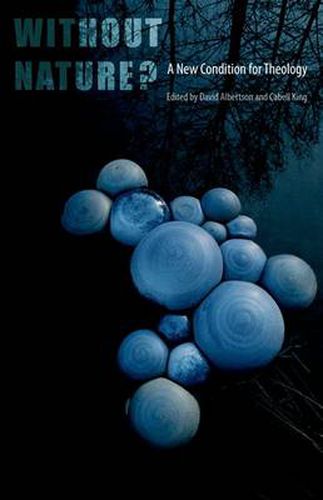Readings Newsletter
Become a Readings Member to make your shopping experience even easier.
Sign in or sign up for free!
You’re not far away from qualifying for FREE standard shipping within Australia
You’ve qualified for FREE standard shipping within Australia
The cart is loading…






Does nature still exist? Common wisdom now acknowledges the malleability of nature, the complex reality that circumscribes and constitutes the human. Weather patterns, topographical contours, animal populations, and even our own genetic composition-all of which previously marked the boundary of human agency-now appear subject to our intervention. Some thinkers have suggested that nature has disappeared entirely and that we have entered a postnatural era; others note that nature is an ineradicable context for life.
Christian theology, in particular, finds itself in an awkward position. Its Western traditions have long relied upon a static nature to express the dynamism of grace, making nature a foundational category within theology itself. This means that any theological inquiry into the changing face of nature must be reflexive and radically interdisciplinary.
This book brings leading natural and social scientists into conversation with prominent Christian theologians and ethicists to wrestle collectively with difficult questions. Is nature undergoing fundamental change? What role does nature play in theological ethics? How might ethical deliberation proceed without nature in the future? What does the religious drive to transform human nature have to do with the technological quest to transcend human limits? Would the end of nature make grace less comprehensible?
$9.00 standard shipping within Australia
FREE standard shipping within Australia for orders over $100.00
Express & International shipping calculated at checkout
Does nature still exist? Common wisdom now acknowledges the malleability of nature, the complex reality that circumscribes and constitutes the human. Weather patterns, topographical contours, animal populations, and even our own genetic composition-all of which previously marked the boundary of human agency-now appear subject to our intervention. Some thinkers have suggested that nature has disappeared entirely and that we have entered a postnatural era; others note that nature is an ineradicable context for life.
Christian theology, in particular, finds itself in an awkward position. Its Western traditions have long relied upon a static nature to express the dynamism of grace, making nature a foundational category within theology itself. This means that any theological inquiry into the changing face of nature must be reflexive and radically interdisciplinary.
This book brings leading natural and social scientists into conversation with prominent Christian theologians and ethicists to wrestle collectively with difficult questions. Is nature undergoing fundamental change? What role does nature play in theological ethics? How might ethical deliberation proceed without nature in the future? What does the religious drive to transform human nature have to do with the technological quest to transcend human limits? Would the end of nature make grace less comprehensible?